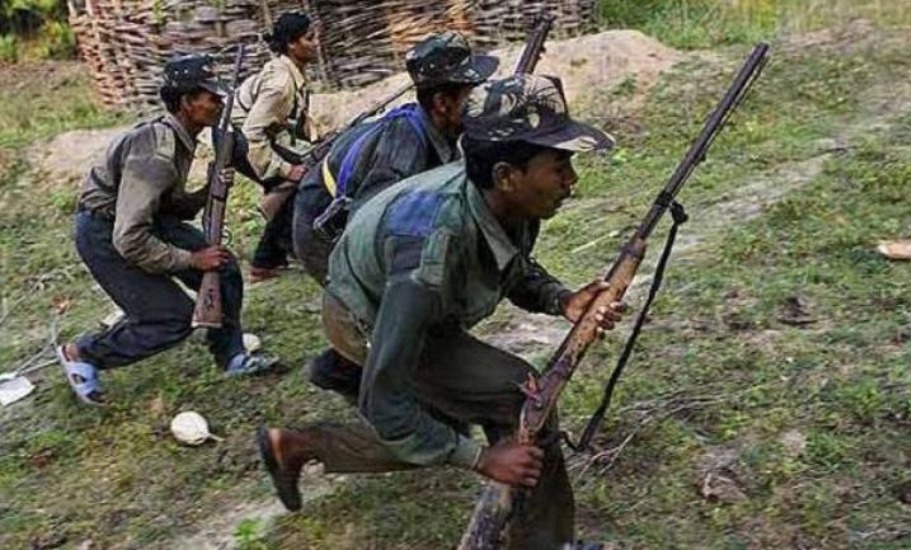
Chhattisgarh’s tribal outreach pushes Maoists to MP's Amarkantak
The sylvan surroundings of Madhya Pradesh’s Amarkantak region have of late become a major security concern. Its impenetrable forest is providing a perfect setting for the CPI (Maoist) cadres to set up its new base as it is making tactical retreat from its stronghold of Bastar, said sources in Chhattisgarh police.

The sylvan surroundings of Madhya Pradesh’s Amarkantak region amid lofty mountain ranges, gushing rivers and cascading waterfalls, have of late become a major security concern.
Its impenetrable forest is providing a perfect setting for the CPI (Maoist) cadres to set up its new base as it is making tactical retreat from its stronghold of Bastar after recent reverses, said sources in Chhattisgarh police.
Maoist-related incidents in Chhattisgarh, the state most affected due to left-wing extremism in India, dropped by more than 32 per cent last year.
Security apparatus in the state attribute the decline to the three-pronged strategy of ‘Vishwas-Vikas-Suraksha’ (trust, development and security) adopted by the state government.
The ambush on a team of Chhattisgarh Armed Force (CAF) personnel and a blast triggered by Maoists in the jungles of Bastar district on Saturday (March 14) are acts of desperation, according to the police. Two CAF jawans were killed in the ambush while a CRPF jawan was injured in the blast.
“Our three-pronged strategy of ‘Vishwas-Vikas-Suraksha’ is yielding good results with 40 per cent decline in Maoist violence this year as compared to previous years,” said Sunderraj P, inspector general of police (Bastar Zone).
Related news: Chhattisgarh govt panel recommends withdrawal of 91 cases against tribals
To win the trust of the tribals, the Bhupesh Baghel-led Congress government in Chhattisgarh restored more than 1,700 hectares of land acquired for now-abandoned Tata Steel project to over 1,700 tribal farmers in the worst Naxal-hit Bastar area.
The state’s law and legislative affairs department also decided to withdraw over 300 cases registered against the Scheduled Tribe (ST) people in eight Naxal-affected districts under the provisions of Section 321 of the Criminal Procedure Code (CrPC).
Besides, the government increased the minimum support price for per standard sack of tendu leaves (Diospyros melanoxylon), used as beedi wrappers, from ₹2,500 to ₹4,000. One standard sack of tendu leaves contains 1,000 bundles of 50 leaves each. Mostly tribal women collect tendu leaves from the forest.
The state government also purchased paddy at ₹2,500 per quintal from 18.45 lakh registered farmers.
As part of its tribal outreach, the state government also launched the CM Haat Bazar Clinics on October 2 last year, on the occasion of the 150th birth anniversary of Mahatma Gandhi, to provide proper health care facilities in weekly markets in far flung areas.
In these clinics, medical teams comprising doctors, para-medical staff along with sufficient medicines, visit rural markets to provide healthcare services in all denoted scheduled tribe areas that lack basic healthcare facilities.
Related news: Inside Kerala’s Attappadi hills, days after Maoist ‘encounter’
Mukhyamantri Suposhan Abhiyan (CM Nutrition Scheme) is another welfare scheme launched by the state government last year to win the heart of tribal people, the fulcrum of Maoist movement in the country. Under the scheme, fresh nutritious food is provided to malnourished children and women in the state.
Chhattisgarh Home Minister Tamradhwaj Sahu said Maoist-related violence witnessed a steep decline in the state as welfare and development initiatives of the state government are getting positive response from the local populace.
State police’s intelligence reports too indicate that the support base of the Maoists is dwindling in tribal areas of Chhattisgarh, said a police officer who refused to be identified.
According to recent data provided by the state police, the number of encounters between security forces and Maoists declined to 112 in 2019 from 166 in 2018, a fall of over 32 per cent. While there were 77 incidents of IED explosion triggered by Maoists in 2018, the number of such incidents dropped to 41 last year.
In 2018, 89 civilians were killed due to Maoist violence as against 46 in 2019, a fall of 48.3 per cent. Moreover, 53 police personnel were killed by Maoists in 2018, and the number dropped to 19 in 2019.
Related news: Maoists debate over red corridor in south India’s tri-junction
An interception of Maoist communication in March this year revealed that following the reverses in Chhattisgarh, the CPI (Maoist) is now developing a new base in the dense forests of Amarkantak to operate in Maharashtra, Madhya Pradesh and Chhattisgarh (MMC).
The Amarkantak area, where the Vindhya, Maikal and Satpura mountain ranges converge in Madhya Pradesh and Chhattisgarh, though possibly the most pristine zone in central India, is inaccessible due to lack of road connectivity. The area is also very sparsely populated, and hence not well policed. Distance between two police stations here is about 30 to 40 kms.
This has made the place a perfect hideout for the insurgents.
Two platoons — Vistaar Platoon-1 and Vistaar Platoon-2 — of the Kawardha-Balaghat (KB) division of the CPI (Maoist) are engaged in establishing the new base, said police sources.
Head of the CPI (Maoist)’s MMC zone, Deepak Teltumbade, is now reportedly based in the Amarkantak area, which is strategically nestled close to the borders of Madhya Pradesh, Maharashtra and Chhattisgarh.


